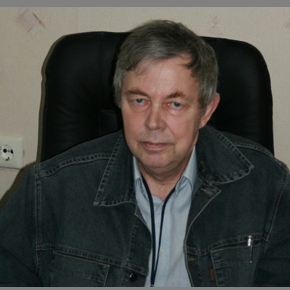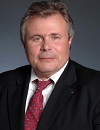 |
||
|
Uncertain World: Vice President Biden reconnaissance visit to Moscow RIA Novosti, Fyodor Lukyanov, PUBLISHED March 11, 2011 Vice President Joe Biden, the second most senior U.S. politician, and a man deeply involved in the country’s Russia policy, is in Moscow on a two day visit. Biden is the man who first coined the phrase “push the reset button” during the Munich security conference two years ago. He also told the Wall Street Journal, in an interview in July 2009, that Russia's economy is “withering” and that the trend would force the country to make accommodations to the West on a wide range of national security issues, including loosening its grip on former Soviet republics and shrinking its vast nuclear arsenal. And lastly, it was Biden’s influence in Congress that ensured the New START Treaty was ratified in December 2010. The reset program formulated in spring 2009 has been fulfilled and the partners now need a new agenda. Biden’s Moscow trip is the first step in this direction. There are three sets of issues – strategic, regional and economic – on which Russia and the United States need to reach an agreement. When it comes to strategic questions, both countries are vaguely optimistic about agreeing on joint ballistic missile defense in Europe. But they have also said these consultations are proving difficult and that their chances of success are slim. Shortly before Biden landed in Moscow, the USS Monterey guided missile cruiser changed course for the Mediterranean to take up a permanent defensive position, while Secretary of State Hillary Clinton said a U.S. Air Force base and Standard-3M missiles would be deployed in Poland. The cruiser, combined with the units and weapons to be deployed in Poland, will form elements of the United State’s ballistic missile defense program, which, as President Barack Obama announced in September 2009, is to replace the shield planned under President George W. Bush. Moscow is less concerned by this ballistic missile infrastructure, which poses no threat to its strategic missiles, than by plans to establish an air force base in Poland, even though this latter is nothing more than political reassurance for a Warsaw still smarting after the U.S. refusal to deploy silo-based interceptor missiles in the country. This is just one aspect in the whole panoply of U.S.-Russian strategic contacts. The sides still cannot come to a consensus on ballistic missile defense. Moscow proposed a principle of joint responsibility, which would radically change the nature of their relations. But its implementation is hindered by surmountable technical issues and a grave psychological problem: a lack of trust (in theory – surmountable). However, there is an interim variant, which is both practicable and desirable. This provides for enhanced information exchange and more closely coordinated action, while retaining autonomous national missile defense systems and hence maintaining mutual deterrence. The regional issues are closely linked to these strategic concerns. According to the U.S. National Military Strategy for 2011, the United States has shifted its military focus from Europe to Asia. Russia is mentioned in the document only once, with regard to the United States’ intention to cooperate with it “on counter-terrorism, counter-proliferation, space, and Ballistic Missile Defense, and welcome it playing a more active role in preserving security and stability in Asia.” The United States seeks to cooperate with Russia on Iran, Afghanistan and East Asia. This last is significant because the nascent growth of U.S.-Chinese rivalry has forced the United States to review its stance on Russia’s possible role in the region.Discussions of a potential U.S.-Russian ballistic missile shield are directly related to this issue: strategic rapprochement between Washington and Moscow is bound to worry China, something Russia must take into account. Development scenarios for Iran and Afghanistan are now influenced by the unrest spreading across the Middle East and North Africa. During his Moscow visit, Biden will try to determine whether Russia is ready to support potential political, economic and military action against Libya. Since Russia is not particularly committed to Gaddafi, the Kremlin will most likely discuss this issue pragmatically, if the United States is intent on taking action in Libya and is prepared to offer Russia benefits in return. The third set of issues concern economic cooperation. Vice President Joe Biden visited the Moscow School of Management at Skolkovo, near to where the government plans to create its “Russian Silicon Valley.” It has become a “must-see” for all foreign visitors but is not expected to produce practical results. Unlike in Europe where big business gets clear political signals from the government, in the United States, the White House has little leverage over the country’s leading corporations. The sides discussed Russia’s WTO accession, which Washington now seems to favor. It could be just a coincidence that Russia and Georgia, one of the staunchest opponents of Russia’s WTO accession, will hold consultations over the coming days, but in any case it demonstrates that the talks are into the home stretch. In 2009, Joe Biden predicted that Moscow’s opportunities would be restricted by demographic and economic crises and growing problems with its southern and eastern neighbors. Although he spoke somewhat disdainfully, his perception of Russia’s objective problems was right on the money. That could be the reason Russia’s policy has become more flexible, as Moscow is now keen to avoid unnecessary clashes. Or perhaps the cause lies elsewhere. The United States is also facing new foreign policy problems and needs both new partners and new approaches if it is to resolve them. China’s rapid growth, the deadlock in Afghanistan, Iran’s expanding influence, unrest in the Middle East, and the U.S. budget deficit have all had a sobering effect on the White House. So whatever Joe Biden thinks about Russia’s future, he and other U.S. leaders will be unable to ignore it. Other news: Russia ready to finance Egypt first nuclear plant Russia confirmed its participation in a tender to build Egypt's first nuclear power plant and said it was willing to help finance the project. ARMZ acquires Australian uranium producer in $1.2 bln deal ARMZ will pay eight Australian dollars per share, which represents a 15.5 percent premium on the average market price for 20 trading days. Russia to start building Turkish NPP in 2013 Russia will start building Turkey's first NPP estimated at $20 billion in 2013, Russian ambassador to Ankara Vladimir Ivanovsky said. |
Hero of the day 
Alexander Chistozvonov: end of the Romantic period Today, the army of managers is earnestly believing that one can take the man responsible for the licensing of alcoholic beverages, and put it on licensing, and even to supervise the nuclear reactor. INTERVIEW
Christophe Behar OPINION
Vladimir Rychin |

